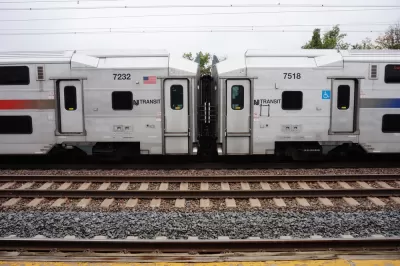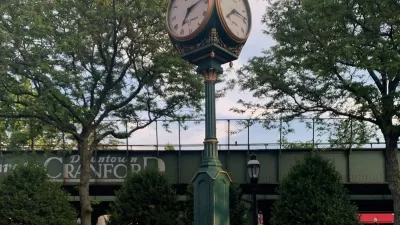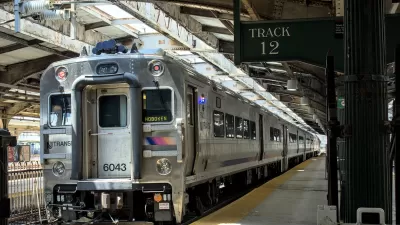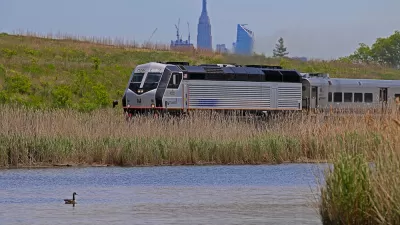The agency is facing a multitude of funding, management, and organizational challenges.

Governor Phil Murphy recently released an audit of New Jersey Transit, the state's beleaguered transit system. Patrick McGeehan reports on five major issues discussed in the report, along with recommendations for improvement.
"From one annual state budget to the next, New Jersey Transit leaders never knew where they would get enough money to run their existing service, much less make investments for the future," says McGeehan. The audit recommended creating an office to develop the agency's vision and a plan to oversee its resources.
The agency has also had trouble hiring and retaining employees, particularly engineers. The audit recommended updating and improving the hiring process.
Maintaining equipment has also been a problem, says McGeehan. The report suggested revamping the system for managing inventory and purchasing equipment.
The audit also noted that New Jersey Transit does not effectively communicate with its customers about delays and other system problems. Information is often inconsistent and not disseminated to all the staff. "The consultants suggested that the agency use social media to try to turn around negative impressions of its performance," says McGeehan.
The agency's financial situation was another concern. The audit suggested ways to increase revenue without fare increases. "Among the ideas the report discussed were finding new sources of revenue, such as the development of real estate around New Jersey Transit train stations and other properties; selling more advertising around its stations; and proposing taxes or fees on ride-hailing apps, like Uber, that could generate funds for transit," reports McGeehan.
FULL STORY: 5 Ways N.J. Transit Is Failing Commuters

Alabama: Trump Terminates Settlements for Black Communities Harmed By Raw Sewage
Trump deemed the landmark civil rights agreement “illegal DEI and environmental justice policy.”

Study: Maui’s Plan to Convert Vacation Rentals to Long-Term Housing Could Cause Nearly $1 Billion Economic Loss
The plan would reduce visitor accommodation by 25% resulting in 1,900 jobs lost.

Planetizen Federal Action Tracker
A weekly monitor of how Trump’s orders and actions are impacting planners and planning in America.

Parklet Symposium Highlights the Success of Shared Spaces
Parklets got a boost during the Covid-19 pandemic, when the concept was translated to outdoor dining programs that offered restaurants a lifeline during the shutdown.

Federal Homelessness Agency Places Entire Staff on Leave
The U.S. Interagency Council on Homelessness is the only federal agency dedicated to preventing and ending homelessness.

Restoring Northern India’s Himalayan ‘Water Temples’
Thousands of centuries-old buildings protect the region’s natural springs and serve as community wells and gathering places.
Urban Design for Planners 1: Software Tools
This six-course series explores essential urban design concepts using open source software and equips planners with the tools they need to participate fully in the urban design process.
Planning for Universal Design
Learn the tools for implementing Universal Design in planning regulations.
Caltrans
Smith Gee Studio
Institute for Housing and Urban Development Studies (IHS)
City of Grandview
Harvard GSD Executive Education
Toledo-Lucas County Plan Commissions
Salt Lake City
NYU Wagner Graduate School of Public Service





























